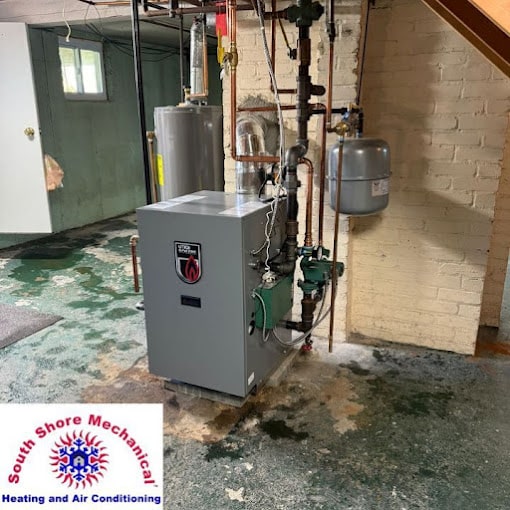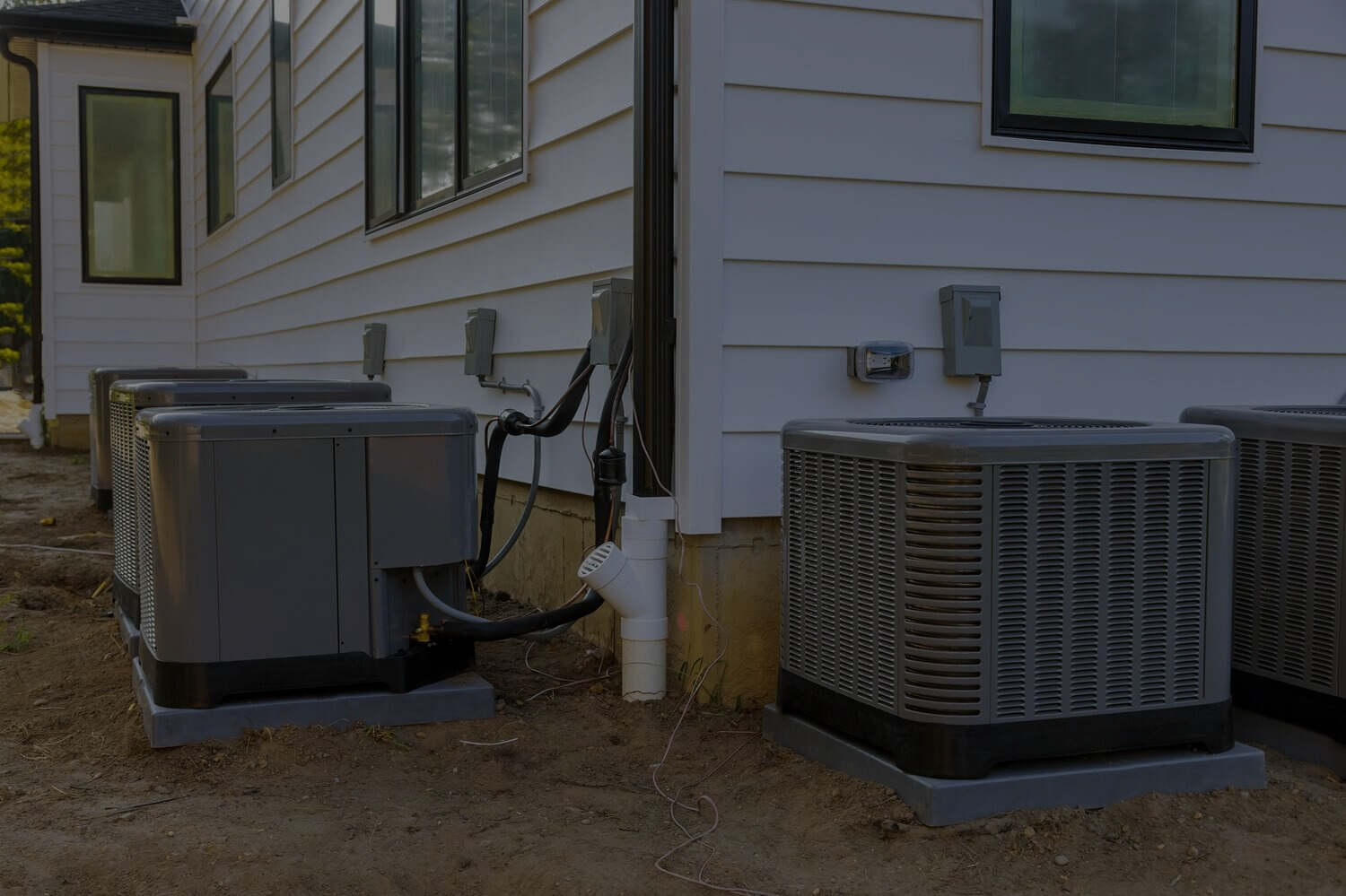
-
support
-
Blog
-
0 Comments
-
February 13, 2025
Signs You Need Furnace Replacement, Not Repairs: Key Signs
How many furnace repairs are too many? If your heating system keeps breaking down, struggles to heat your home, or sends your energy bills through the roof, you might be wasting money on a furnace that’s past its prime. At some point, repairs stop being worth it, and a furnace replacement is the smarter move.
So how do you know when it’s time to replace instead of repair? Some signs are easy to spot and some can be mistaken for a simple repair job. Instead of waiting for it to break down in the middle of winter, consider the benefits of a furnace replacement. Keep reading to find out when replacing your furnace is the smarter choice and how South Shore Mechanical can help you upgrade hassle-free.
Why Furnace Replacement is Sometimes Better Than Repairs
At some point, fixing an old furnace stops being worth it. If your heating system keeps breaking down, needs expensive furnace repairs, or just doesn’t heat your home properly, a furnace replacement might be the smarter option.
Think of it like an old car that constantly needs work. Sure, you can keep fixing it, but if you’re pouring money into repairs every few months, you’re probably better off upgrading to something newer and more efficient.
Long-Term Savings with Furnace Replacement
A new furnace isn’t cheap, but neither are constant repairs and high energy bills. Old furnaces lose efficiency, meaning they burn more fuel to produce the same amount of heat.
They heat better, use less fuel, and often qualify for rebates or energy incentives. ENERGY STAR-qualified furnaces are approximately 15% more efficient than standard models.
Plus, newer models require fewer repairs, so you’re not paying a technician every winter. If your current system keeps breaking down, investing in a replacement could save you more money than trying to keep an old furnace alive.
When It’s Time to Replace Your Furnace
Not sure when to replace a furnace? There are a few clear signs. If you’re making frequent service calls, struggling with uneven heating, or noticing rising energy costs, your system is likely wearing out.
Age is another key factor. When should a furnace be replaced? Most units last around 15–20 years. Units in operation for 15 years or longer can cost roughly $333 per year in maintenance, compared to $100 per year for newer units. If yours is nearing that mark, it’s worth looking at replacement options before it breaks down completely.
Frequent Breakdowns and Costly Repairs
If your furnace is breaking down every season, it becomes a money drain. Once repair costs start adding up to half the price of a new system, replacement becomes the better choice.
The Age of Your Furnace
Most furnaces last about 15–20 years. If yours is reaching that age and showing signs of wear, it may be time to upgrade before it completely breaks down unexpectedly.
Uneven Heating or Poor Airflow
Are some rooms too warm while others stay cold? A struggling furnace won’t distribute heat properly. This can mean clogged ducts, a weak blower, or just an aging system that’s not working efficiently anymore.
Rising Energy Bills
A run-down furnace will drive up your heating costs because it has to work harder to maintain the same temperature.
Strange Noises from the Furnace
Loud banging, rattling, or squealing sounds aren’t normal. They often mean failing parts, loose components, or a system on its last legs.
How to Decide Between Furnace Repairs and Replacement
If you’re unsure about repairing or replacing your furnace, here’s a quick breakdown:
| Factor | Repair | Replace |
| Age | Under 10 years old | 15+ years old |
| Repair Costs | Minor, under $500 | Major, over 50% of a new unit |
| Breakdowns | Once in a while | Frequent issues every season |
| Energy Bills | Stable | Increasing despite regular use |
| Heating Performance | Works well | Uneven heating or weak airflow |
If your furnace is old, expensive to fix, or struggling to heat your home, a replacement is likely the best move.
Will Replacing Your Furnace with Energy Efficient Unit Save You Money?
Yes. A modern furnace uses less fuel, heats your home faster, and doesn’t need constant repairs. This means lower energy bills and fewer HVAC service calls. Many new systems also qualify for rebates, helping offset the initial cost.
Why You Should Consult a Technician
Deciding between a furnace substitute and repairs isn’t always easy. A technician can inspect your system, check its efficiency, and let you know if it’s worth repairing or replacing. They’ll look at factors like repair history, energy consumption, and overall performance to guide you toward the right choice.
Stop Wasting Money on Furnace Repairs and Get a Replacement from South Shore Mechanical
When your furnace costs more to fix than it’s worth, it’s time to move on. Replacing a furnace could be the smartest investment you make this season. Call (508) 631-9609 now and upgrade with confidence!
FAQS about Furnace Loud Noises and Sounds
- How do I know when my furnace is beyond repair?
Knowing when a furnace is beyond repair involves assessing factors like age, performance, and repair frequency. If your furnace is over 15 years old and requires frequent repairs, or if your energy bills are rising despite consistent usage, it might be time to consider a replacement. Unusual noises, uneven heating, or visible signs of wear can also indicate that the furnace is nearing the end of its lifespan.
- What is the lifespan of a typical furnace?
Typically, a well-maintained furnace lasts between 15 to 20 years. Factors such as brand quality, fuel type, installation, and regular maintenance play significant roles in its longevity. For instance, electric furnaces often have a longer lifespan compared to gas models.
- Is it worth replacing a furnace that is only 10 years old?
Replacing a furnace that’s only 10 years old depends on its performance and any issues you’re experiencing. If it’s operating efficiently without frequent problems, replacement might not be necessary.
- Can I still repair my furnace if it’s over 15 years old?
Even if your furnace is over 15 years old, repairs are possible. However, it’s important to weigh the cost of repairs against the value of the aging system. If repair expenses approach half the cost of a new furnace, investing in a replacement could be more economical.
- What are the most energy-efficient furnace options?
When considering energy-efficient furnace options, look for models with a high Annual Fuel Utilization Efficiency (AFUE) rating. Furnaces with an AFUE of 90% or higher are considered highly efficient, converting more fuel into heat and reducing energy costs.
- Will replacing my furnace improve indoor air quality?
Replacing your furnace can indeed improve indoor air quality. Modern furnaces often come equipped with advanced filtration systems that better remove dust, allergens, and other pollutants from the air, contributing to a healthier living environment.

